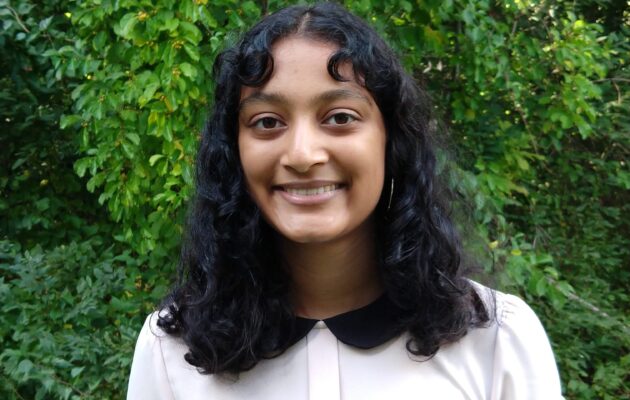
We’re asking students, recent grads, teachers, and counselors five questions on how languages play a role in shaping personal and professional success…
Meet Anushka—a Massachusetts high school senior soon embarking on her school's exchange program to Switzerland.
1. Could you share with us a little about your earliest experiences with languages—when and how did you begin? Why French?
I started taking French in sixth grade because French and Latin were required at my school. When I moved in eighth grade and attended a new school, I had the option to choose a different language but I decided to keep learning French because I already had two years of experience in the language
I did not like learning French at first, but I am so glad I continued because eighth grade is when I started to love French. Once I got over the initial frustration of not knowing how to properly express my thoughts, I found that learning French was a lot of fun! I love the way it sounds and finding connections between English, Hindi, and French has always been very exciting to me. It also gave me the chance to experience opportunities I never thought I would be able to do, like going to Quebec twice on school trips and participating in my high school’s Switzerland exchange program this year.
2. This spring, you’ll be traveling with your school to visit a sister city in Switzerland! What are you most looking forward to about this experience?
I am so excited to meet new people! I have never been to Europe before but visiting museums, trying new foods, and learning about different cultures is right up my alley. Through the exchange, I have gotten to know some of my classmates who are also participating in addition to my corres (penpal), so I am looking forward to continuing to form bonds with those who live near and far from me.
3. What tips or advice about learning languages would you share with a fellow student?
Explore resources outside of the classroom! Taking a class is a great way to be introduced to a language, but you can only gain so much from being in a controlled environment for a limited number of hours a week.
Not everyone has the ability to travel to foreign countries to gain full immersion, but there are amazing podcasts, YouTube channels, songs, and books that are a great boost to language-learning.
If possible, find time to learn things you may not be informed of at school or in a class, like slang words, popular musicians, and cultural differences. It will only enrich your experience and ability to communicate.
4. Have you got a favorite word or expression in another language—what is it, what does it mean, and why is it special?
One of my favorite French expressions is “vouloir c’est pouvoir,” which is the equivalent of saying “where there’s a will there’s a way” in English. It is one of the first French expressions I learned, and it is a lot of fun to say. It’s optimistic, it’s short and sweet, and it rhymes! What more can you want from an expression?
I’ve also always thought the word pamplemousse (grapefruit) was super funny.
5. What’s next on your language journey?
I am traveling to Switzerland next month, which I can’t wait to do! I have also been exploring some study abroad programs offered by colleges I am applying to that are located in French-speaking countries. As I’m currently exploring a potential undergraduate major in biochemistry and eventual work in the field of forensics, I am not planning on majoring in French but I will definitely continue to search for ways to immerse myself in the language.
BONUS QUESTION
Complete this thought: “Learning another language means…”
Learning another language means committing to the process of communicating with and understanding others. It means letting go of past assumptions or stereotypes and embracing new ways of thinking.
Check out our Connect with French, Connect with Hindi, and Language Programs & Funding pages to explore language scholarships, university programs, testimonials, and more! And, as always, visit @LangConnectsFdn on social media to share your story with us.
